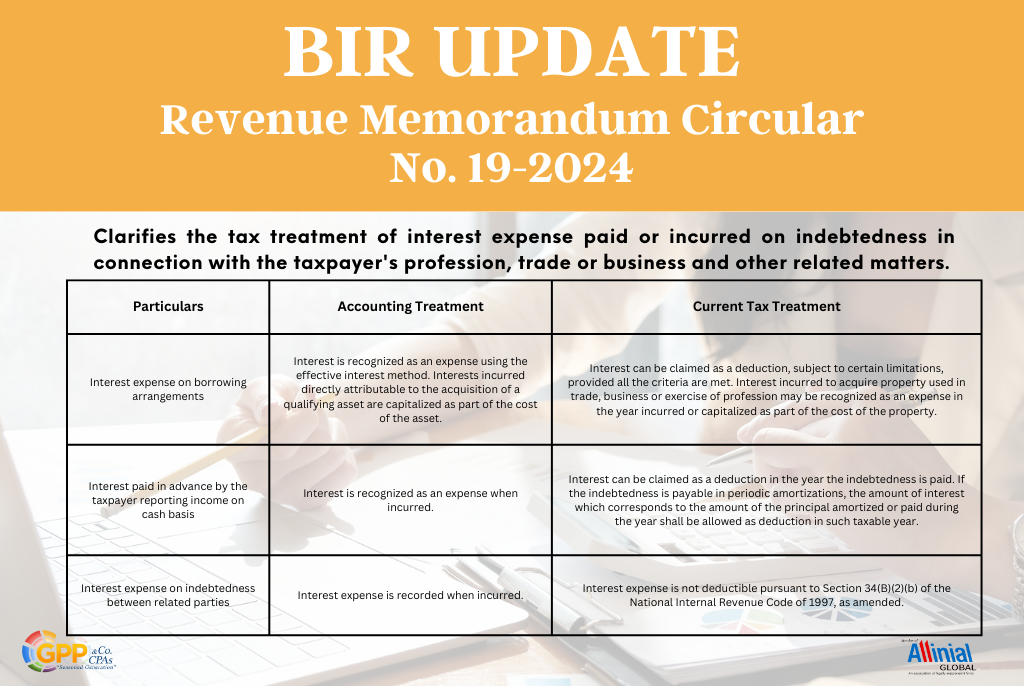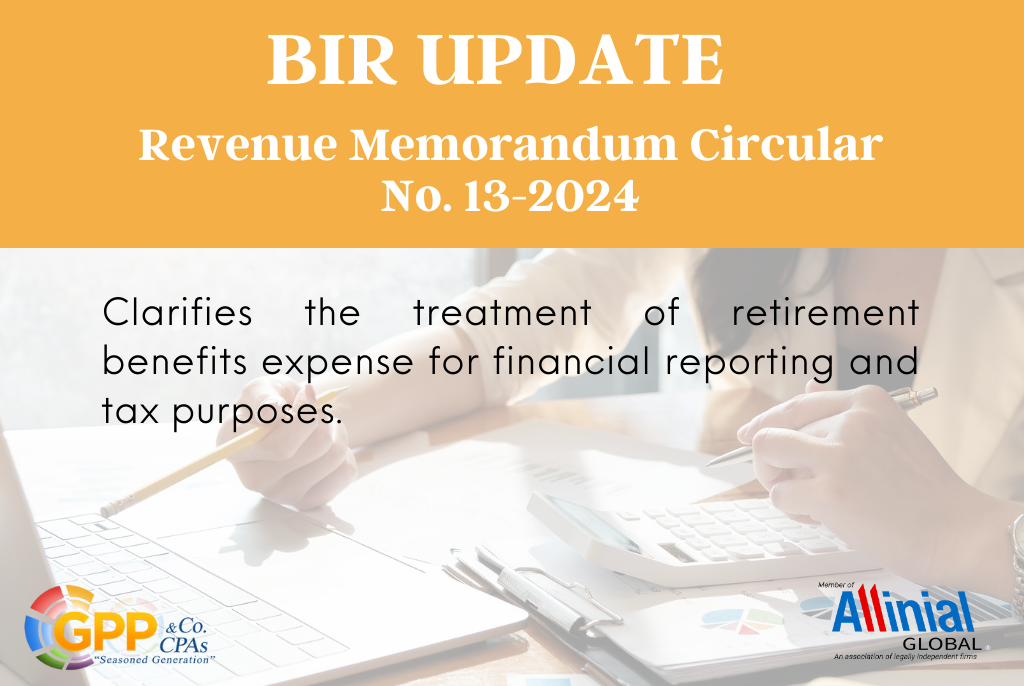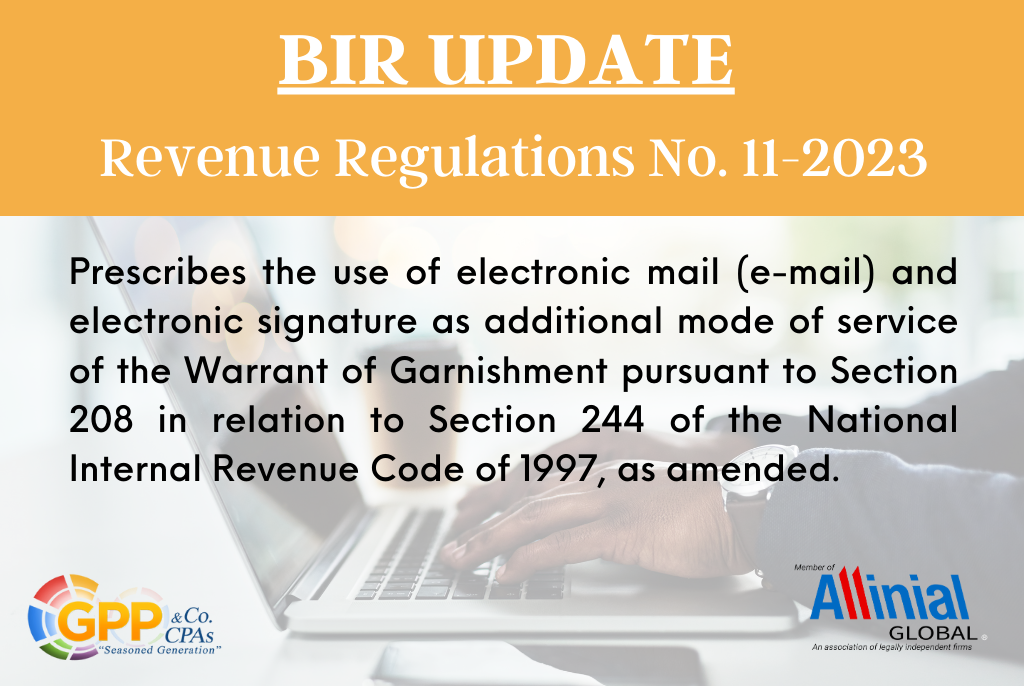Revenue Regulations No. 12-2024
super_admin2024-07-17T17:24:30+08:00This Revenue Regulation is issued that amends Sections 5 and 6 of Revenue Regulations (RR) No. 3-2019 on the validity if Certificate Authorizing Registration (eCAR) and its revalidation. Pursuant to the provisions of Section 244 in relation of Sections 58(E), 95 and 97 of the National Internal Revenue Code 1997, as amended, these Regulations are promulgated to pertinent provisions of RR No, 3-2019, which prescribed the use of eCAR System. Section 5 and 6 of RR No. 3-2019 are amended to read as follows: "SEC. 5- VALIDITY OF eCAR - The eCAR shall be valid from the date of its issuance [...]






